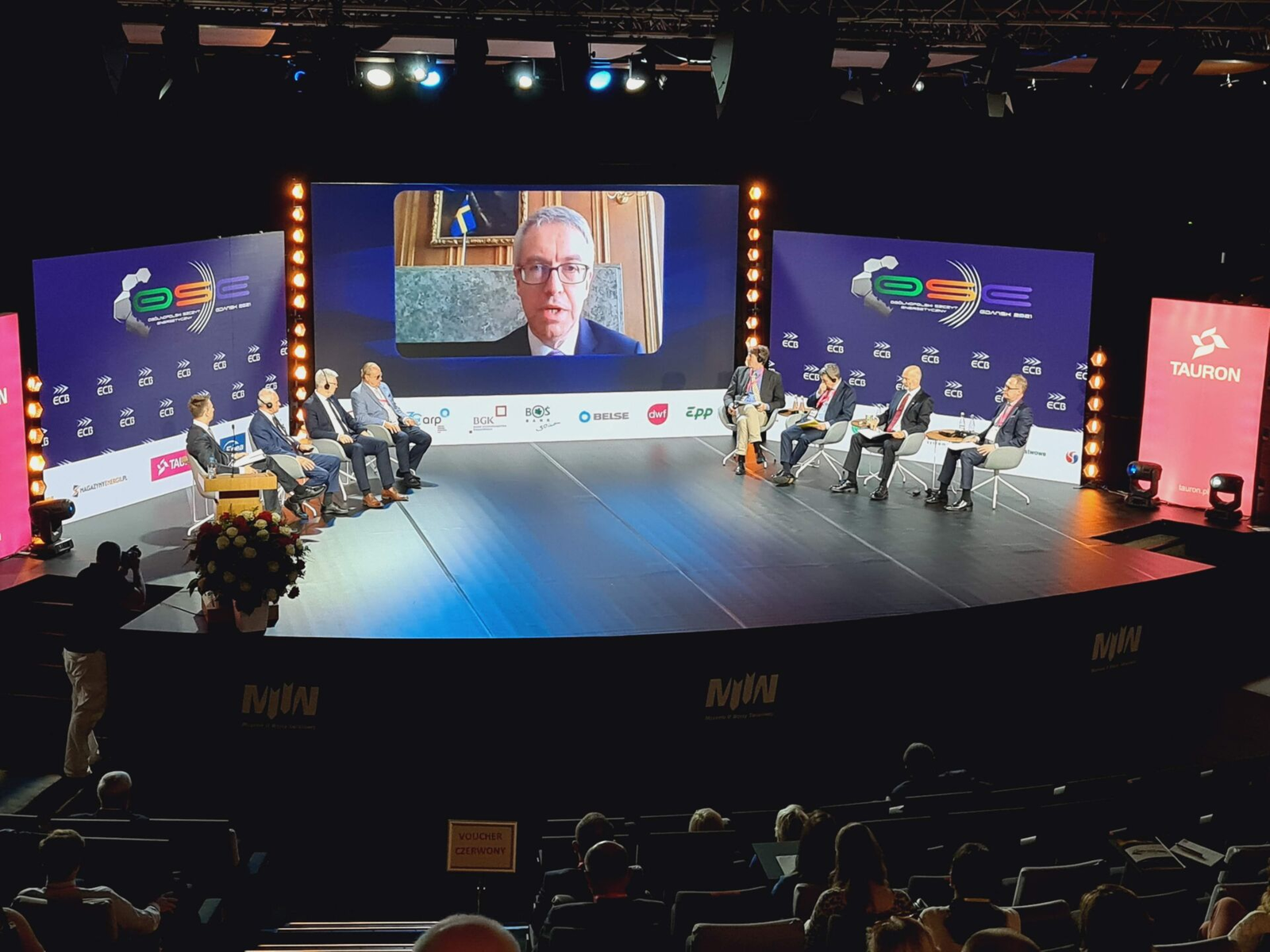An insider’s view from the ninth Polish National Energy Summit


· 5 min read
I felt grateful, inspired and positive while representing RSK on my first live event this year at the National Energy Summit 2021 in the amazing city of Gdańsk, Poland. Over two days, from June 21–22, at the Museum of the Second World War, the ninth summit – locally called OSE GDAŃSK 2021 – analysed and discussed the challenges facing the Polish energy sector.
Last year, 2020, was a historical year in Poland for energy generation. The share of coal in electricity generation fell below 70 per cent for the first time in the country’s history. Conversely, the share of renewable energy sources increased, thanks to prosumer photovoltaic cells generating up to 4 gigawatts (GW) and onshore wind power plants operating at 6.4 GW installed capacity. Furthermore, net imports of electricity reached a record 13.3 terawatts-hour (TWh), which accounted for 7.8 per cent of Polish electricity consumption.
Zbigniew Kozłowski, a partner at the legal firm DWF Poland, moderated the first session detailing Polish energy policy: EU priorities versus Polish strategic goals. Małgorzata Jarosińska-Jedynak and Piotr Naimski (Polish parliamentary members) discussed questions regarding Poland’s energy transition and the opportunities for a green recovery. Norwegian, Swedish, German, Finnish and Danish ambassadors added further depth and a broader European perspective to the discussions.
A noteworthy aspect involved Ireneusz Zyska, Secretary of State for the Ministry of Climate and Environment, reflecting on the hydrogen prospects in Poland. Mr Zyska spoke about how his ministry is working on a strategic paper concentrating on three aspects of the hydrogen economy. He detailed the sequence of events necessary for implementing hydrogen as a fuel and, in his view, transportation will come first. He also mentioned the letter of intent for creating the Subcarpathian Hydrogen Valley in cooperation with the Rzeszów University of Technology. The participants also spoke about prosumers. The shared view was that the electricity grid cannot be an unlimited buffer for household solar producers: in the future, aggregators should become more involved. Mr Zyska assured participants that current prosumers will be not affected by new regulations.
Dr Jerzy Baehr, Managing Partner, WKB Wierciński Kwieciński Baehr law firm and Dr Jakub Pokrzywniak, Partner and Legal Adviser, Kancelaria Wierciński Kwieciński Baehr, moderated the segment concerning strategies for adapting energy groups to new market realities and changes in the state’s energy policy.
When discussing renewables, the speakers emphasised the security of the supply rather than focusing on solutions to the balancing issue. Paweł Strączyński, Chairman of Tauron Polska Energia, emphasised that the Polish energy transition will rely on new nuclear power plants by 2035, phasing out coal and natural gas. An effort that will be vital to Poland’s energy-transition efforts. Indeed, by the end of 2020, the European Bank for Reconstruction and Development had invested 24 per cent of the 1 billion złoty [approximately 218 million euros] bond issued by Tauron Polska Energia. Concurrent to that announcement, it was revealed that the bond will be used to expand Tauron’s portfolio of solar photovoltaic installations to 300 megawatts (MW) and its portfolio of onshore wind farms by another 720 MW by 2025, as well as investing in the distribution grid to facilitate renewable energy generation.

During his segment, Mr Strączyński also spoke about how his company is finalising its group strategy document, which will be published by September. The document is expected to outline details of how the company will aim to generate more than 65 per cent of its energy from zero- and low-emission sources.
Acting Deputy Director-General for State Forests Jan Tabor spoke about how the government agency is managing more than seven million hectares of forest (80 per cent of the total forests in Poland). The governmental organisation is looking at biomass as a 100 per cent renewable source for resources. It is also aiming for 100 per cent energy self-sufficiency. The agency holds plots of land for 200 MW of solar energy and also keeps unattractive areas for reforestation to facilitate wind turbines. Concerning e-mobility, the agency runs dozens of electric cars and has installed 400 charging points, almost exclusively in rural areas.
When discussing decarbonisation, speakers raised concerns about how the energy-transition process will bring increased prices, assuming that renewables are generally expensive technologies. But, looking at the market data, maintaining the current coal generation figures will raise power prices, which are already deemed too high. This is because of the increasing cost of the CO2 emission permits under the EU’s Emissions Trading System.
In 2020, between April and September, Polish electricity prices have been the highest in Europe, averaging 46 euros/MWh, which is almost 50 per cent higher than the average for the rest of the EU-27 (31 euros/MWh). It was also clear from the discussions that the speakers are backing Poland’s plans for its biggest expansion of using gas to generate electricity – from 14 TWh (in 2019) to 54 TWh (in 2030).
This will make Poland the EU’s third-largest gas-generating country by 2030. For a country that lacks significant gas resources, this may bring both energy security and additional cost burdens. It may also be worth looking at the solutions: whether intermittent power could be integrated into the grid by using internal wind and solar resources.
This article is also published on CEEnergy News. Energy Voices is a democratic space presenting the thoughts and opinions of leading Energy & Sustainability writers, their opinions do not necessarily represent those of illuminem.
illuminem briefings

Hydrogen · Energy
illuminem briefings

Energy Transition · Energy Management & Efficiency
Vincent Ruinet

Power Grid · Power & Utilities
World Economic Forum

Renewables · Energy
Financial Times

Energy Sources · Energy Management & Efficiency
Hydrogen Council

Hydrogen · Corporate Governance